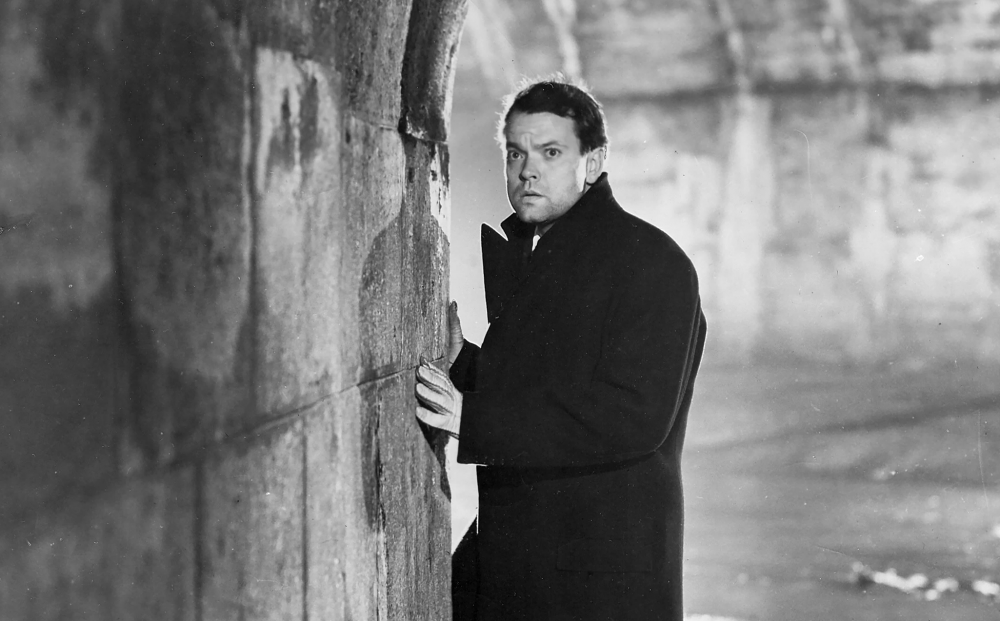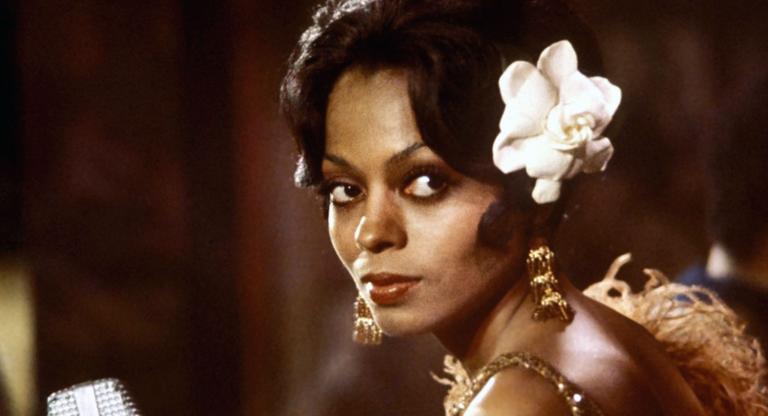The British, Russian, American, and French zones of occupied Vienna are shot at artful Dutch angles in Carol Reed’s The Third Man (1949), written by Graham Greene. Holly Martins (Joseph Cotten) is an American novelist of the dime-store Western variety in town on the invitation of Harry Lime, an old school friend, and just in time for Lime’s funeral. In a sodden bluster of grief and pride, he dismisses the official police report that rules the death an accident and makes his own inquiries with Harry’s closest associates. Most of what he hears he cannot understand; for translation, he relies on Lime’s girlfriend, Anna Schmidt (Alida Valli), a Czechoslovakian stage actress living in the British zone under forged papers.
The jurisdictions of each of the four powers end arbitrarily on certain blocks and overlap uncertainly in the centermost International Zone. Such absurd machinations of modern statecraft were a thing of interest for Reed and Greene. Their first collaboration, the previous year’s The Fallen Idol, features the investigation of a death at the French embassy in London, which the British police are reminded is “technically foreign soil.” There also, Reed takes pleasure in the cinematographic qualities of a city’s infrastructure—a fire escape and succession of windows in Idol is like a film reel with missing frames, just as Vienna’s long curving side streets are a venue for noir shadow play in The Third Man.
Martins has shambled into a world he does not comprehend, and which does not conform to the reassuring simplicity of his pulp fictions—in which he would anyhow be ill-cast, with his hangdog desperation and wetted lips. As war has fractured the space of the city, leaving much of it in ruins besides, it has also corroded the most elemental social bonds. The real action of the film is Martins’s gradual realization that he has only ever been the mark of a confidence game, not the friend of a man. (“We never get accustomed to being less important to other people than they are to us,” from Greene’s treatment.)
Orson Welles and Cotten reprise the dynamic they had originated in Citizen Kane (1941): the maniacal ego, fit to burst, and the timorous, ineffectual voice of conscience, recovering from a lifetime of hero worship. As they swing in a gondola from the war-torn but working Wiener Riesenrad, each weighing whether he can afford to lose the other, the film poses the profiteer’s code of moral relativism in a commanding tone (Welles’s). And yet it soon becomes quite clear on a point of lasting relevance: an individual life might seem slight when seen from the sky, but who can peer into the cradles of a children’s ward and fail to feel?
The villains deal lightly with the fates of others, hoping that Death’s porters in Vienna do not know which way Heaven and which way Hell. Still, guilt seems to eat at their guts: they complain of stomach acid. The twists of plot and canted compositions lead finally to the labyrinthine Viennese sewers.
The Third Man screens through January 4 at Film Forum on 35mm.



